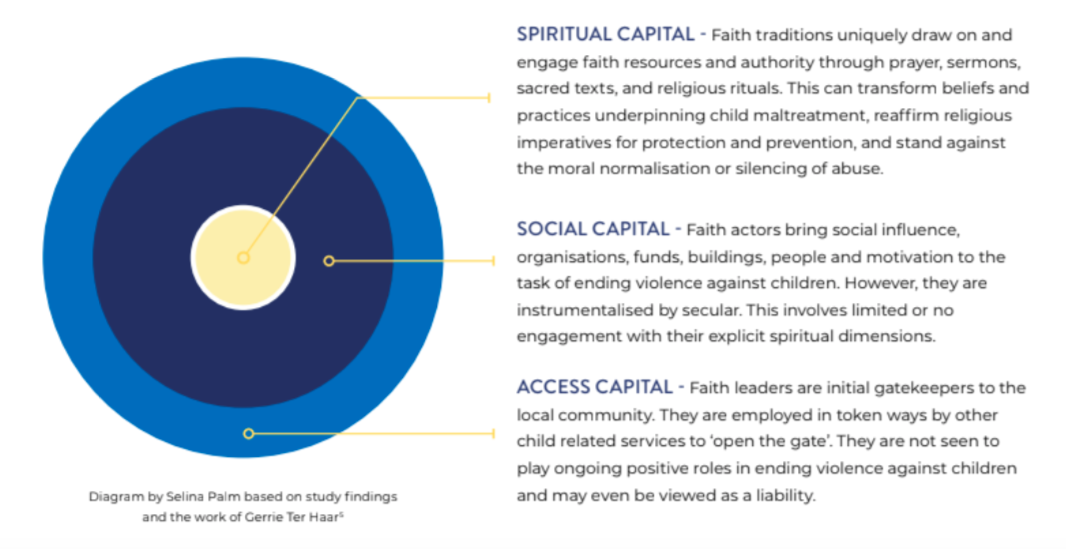On February 26th 2020, JLI’s Ending Violence Against Children Hub began their webinar series with a discussion on spiritual capital. Dr. Selina Palm from Stellenbosch University led the discussion and presented her findings to the webinar attendees. Dr. Palm presented an in depth definition of spiritual capital. (See Figure 1)
Dr. Palm additionally discussed how to engage the faith mechanisms found in JLI’s scoping study to end violence against children. The faith mechanisms examined are as follows:
- Faith communities’ have the potential to promote, challenge, and re-interpret religious beliefs and practices that contribute to violence against children, particularly those with a spiritual foundation or basis in religious texts.
- Faith traditions often mandate practical social action and service in relation to children, especially within education, care, and social support.
- Protective religious beliefs around care and protection of children in faith traditions can be harnessed to accelerate ending violence against children.
- Faith leaders must deal explicitly and constructively with entrenched harmful faith beliefs used to justify or underpin abusive adult/child hierarchies.
- Faith leaders must break the culture of silence and secrecy on hidden practices of child abuse and maltreatment within religious institutions and families and take steps toward preventative action.
- Faith actors should seek, where appropriate, to work with intra-faith, interfaith and wider child protection systems to prioritise child’s best interests.
Watch the full webinar here:
Case Studies mentioned:
- Church Network for Nonviolence: Ending Corporal Violence Against Children
- Chab Dai: The Butterfly Project
- Arigatou International: Learning to Live Together- nurturing children’s spirituality in El Salvador
Further References:
- JLI’s Ending Violence Against Children Scoping Study
- Ending Violence Against Children Scoping Study Brief 1
- Ending Violence Against Children Scoping Study Brief 2
- Engaging Faith Leaders to Prevent and Respond to Violence against Women and Girls in Liberia
- Panama Declaration GNRC Fifth Forum
- Full Report for Early Childhood Development: Integrated Early Childhood Development in Zambia
Learn more about JLI’s Ending Violence Against Children Learning Hub here and see the powerpoint on spiritual capital below.


